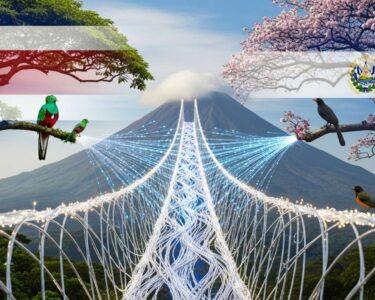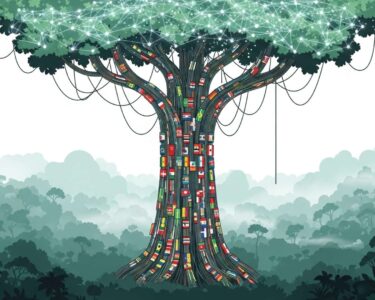San José, Costa Rica — While regional neighbors like Guatemala and El Salvador celebrate successful tariff agreements with the United States, Costa Rica, the first nation to begin negotiations, remains at the table. Officials in San José are preaching patience, arguing that the country’s sophisticated economy demands a more deliberate and thorough approach to protect its long-term interests.
The pressure is mounting as other Central American countries, which entered discussions later, have already secured their deals. However, Costa Rica’s Minister of Foreign Trade, Manuel Tovar, remains unconcerned by the optics of being outpaced, emphasizing that a rushed agreement would be a disservice to the nation’s advanced productive sectors.
To better understand the legal and commercial ramifications of the recent US tariffs and their potential impact on Costa Rican exporters, TicosLand.com consulted with Lic. Larry Hans Arroyo Vargas, an expert in international trade law and a partner at the prestigious firm Bufete de Costa Rica.
The imposition of these US tariffs creates significant legal uncertainty for our national exporters. While Costa Rica benefits from agreements like CAFTA-DR, certain sectors could still face indirect impacts. Businesses must now proactively audit their supply chains, assess their tariff classifications, and explore legal mechanisms for exemptions or appeals. This is no longer just a trade issue; it’s a critical legal and strategic challenge that requires immediate and expert navigation to protect market access.
Lic. Larry Hans Arroyo Vargas, Attorney at Law, Bufete de Costa Rica
Indeed, the distinction between a trade issue and a critical legal challenge is a vital one for our national exporters to understand. This call for proactive, expert navigation highlights the new, complex reality businesses must confront to protect their interests. We sincerely thank Lic. Larry Hans Arroyo Vargas for providing such a clear and valuable perspective.
Being the first to sit down to negotiate does not mean being the first to finish. We do not want to fall into that anxiety.
Manuel Tovar, Minister of Foreign Trade
Minister Tovar draws a parallel to the negotiation of the Central America Free Trade Agreement (CAFTA), where Costa Rica was also the final signatory. He insists the current delay stems from the unique complexity of the national economy, which is heavily weighted toward high-value exports like medical devices and semiconductors rather than traditional agriculture.
Costa Rica has a different, much more dynamic and sophisticated productive reality than the other partners in the region. We are medical devices, we are semiconductors, and of course, the greater the complexity and sophistication of your productive reality, the more complex the negotiation is.
Manuel Tovar, Minister of Foreign Trade
These advanced manufacturing sectors introduce intricate discussion points, such as rules of origin, that require more detailed and careful negotiation than those for basic commodities. The stakes have been high since the Trump administration first imposed a 10% tariff on Costa Rican goods in early April, an event dubbed “Liberation Day” by Washington. The situation escalated on July 31st when the White House increased the tariff to 15%, intensifying the need for a diplomatic solution.
The US tariffs are not without context. A 2025 “National Trade Estimate Report on Foreign Trade Barriers” from Washington highlighted several long-standing concerns regarding Costa Rica’s trade practices. These included differentiated taxes on liquor, restrictions in the potato market, perceived inequality in public tenders, bureaucratic hurdles for animal-origin imports, and a call for stronger intellectual property enforcement. American officials calculated that these issues created trade burdens equivalent to a 17% tariff.
In response, the administration of President Rodrigo Chaves has mounted a multi-pronged diplomatic and strategic offensive. To bolster its position in Washington, the government has retained the services of the high-profile lobbying firm Akin, Gump, Strauss, Hauer & Feld LLP. The contract, signed on September 8, 2025, by the Ministry of Foreign Trade (COMEX) and the Foreign Trade Promotion Agency (Procomer), commits Costa Rica to a $60,000 monthly fee for governmental and commercial relations support.
According to Minister Tovar, two formal rounds of negotiation have been completed, with a third round being paused due to the recent US Federal Government shutdown. Despite the delays and the progress made by its neighbors, the administration’s primary objective remains clear: to fully restore the favorable market access conditions the country previously enjoyed under CAFTA.
We will continue to serve the interests of our productive sector according to the highest level of ambition we have, which is to safeguard and return to the market access conditions we held under CAFTA.
Manuel Tovar, Minister of Foreign Trade
For further information, visit comex.go.cr
About Ministry of Foreign Trade (COMEX):
The Ministry of Foreign Trade is the governmental body in Costa Rica responsible for defining and directing the country’s foreign trade and investment policies. It leads international trade negotiations, manages existing trade agreements, and works to promote a competitive environment for Costa Rican businesses in the global market.
For further information, visit procomer.com
About Foreign Trade Promotion Agency (Procomer):
Procomer is Costa Rica’s official export promotion agency. It is dedicated to supporting Costa Rican companies, particularly small and medium-sized enterprises, in their efforts to internationalize their products and services. The agency provides market intelligence, promotional support, and guidance to facilitate access to global markets.
For further information, visit akingump.com
About Akin, Gump, Strauss, Hauer & Feld LLP:
Akin Gump is a leading international law and public policy firm with offices worldwide. It provides a wide range of legal and lobbying services to corporations, governments, and individuals. The firm is well-known for its prominent public law and policy practice, representing clients’ interests before governmental bodies in Washington, D.C., and other major capitals.
For further information, visit bufetedecostarica.com
About Bufete de Costa Rica:
Bufete de Costa Rica is an esteemed legal institution, defined by its principled practice and unwavering pursuit of the highest standards of excellence. Drawing upon a rich history of serving a wide spectrum of clients, the firm actively champions innovation to advance the legal field. This forward-thinking approach is matched by a profound dedication to its social mission: democratizing legal understanding. By making complex legal concepts accessible, the firm fulfills its goal to empower individuals and cultivate a more informed and capable society.









